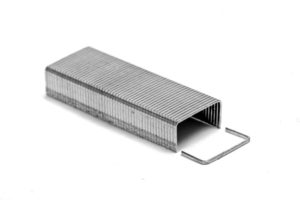One of my clearest, most early memories is precisely when I became aware of the word adaptation in Mr. Johnson’s 6th grade class (I went to elementary school in the US). I was a fresh but asynchronously promoted 5th grader who, after exhaustive testing, administrators felt belonged there for core subjects rather than with my 4th grade pals who I’d just gotten to know. But even though I was technically in a 6th grade class all day, the grownups involved decided to call me a 5th grader, perhaps to lessen – something? I’ll never know. In short, it was so confusing it’s still one of the most memorable experiences of my life.
I may have been ahead in some ways but I was waaay behind socially and emotionally. I dunno that I’d ever felt more alone even to this day. It may have been the first time I’d ever felt I’d been thrown into something way over my head, far beyond my capacity to adapt to, let alone succeed with.
In any case, I didn’t have any language for this then. I was a child. This degree and type of change, unbeknownst to me at the time, required a great deal of adaptation. Being smart in school was not sexy then like it is now and parents seeem to like to brag about their smart kids but they rarely see (and they’ll never share) the down sides.
Not entirely their fault but it needs to be said more loudly and more clearly because there is a gifted kid in your habitat falling thrü the cracks right now even if you aren’t able to see it the odds are pretty good.
I remember it literally like yesterday: Mr. Johnson, a short and stocky team leader straight out of the Lollipop Guild, huge sideburns/chops and all, abruptly launched into a passionate lecture on the concept of adaptation. In a thick, green wool coat, smelling of pipe smoke, and leaning way back in his chair, he used chimpanzees as the hook, specifically how they never sleep in the same place twice, he described how chimps make a new nest for themselves every night and how this is fascinating.
It is.
He went on at length to nudge those of us in class to imagine what that would be like and he said this a lot:
“It’s all about what you get used to.“
Meeanwhile, while I sat there listening to Mr. Johnson tell his stories about chimps and adaptation, I played with a small, red stapler that said GIANT on it in big, white letters. Before he began, it had run out of staples and I needed one to bind one of my completed assignments with.
I had already reloaded it with one of those bound stacks of small staples but continued to futz with it. It was splayed open like a Swiss Army knife as I listened.
As I got more and more into what he was saying, I paid less and less attention to what I was doing.
Suddenly, I pressed the stapler back together, closing it –> kerchunk!
I put a single staple squarely into the center of my thumb. It happened so fast, as I was so engrossed with Mr. Johnson’s propositions, I hardly felt it.
 Mr. Johnson was talking about signs now, traffic signs, specifically, and how new signs have little or no power or effect mostly because they have not been looked at much yet. People, drivers, have not had time to adapt the new signs into their collective memory yet and so they are likely to be ignored.
Mr. Johnson was talking about signs now, traffic signs, specifically, and how new signs have little or no power or effect mostly because they have not been looked at much yet. People, drivers, have not had time to adapt the new signs into their collective memory yet and so they are likely to be ignored.
He said there are countless examples wherein the average driver overlooks many details, which is why signs are more often symbols than words. Symbols are more noticeable, memorable and powerful. Easier to adapt to, in the context of integrating their existence into a driver’s memory and more powerful in their descriptions of the information they are attempting to effectively transmit to the greatest number of drivers.
S I D E N O T E –> There is no way I could have known that my professional life would one day touch marketing and advertising, where symbols of all kinds are indeed everything. In those early days, as my career began careening up and down the corridors of branding, positioning, engineering, what they surprisingly still call ‘digital’, I learned quickly that semiotic insights can transmit across contexts.
As Mr. Johnson went on with his presentation, I looked at the ends of the staple through my thumbnail. I could see them clearly. My instinct was to pull it out but I didn’t.
Instead, I paused and thought about adapting to having it in my thumb. What challenges would it really present? Beyond the obvious, such as infection, etc, I imagined it becoming something I could get used to. I asked myself questions aligned with Mr. Johnson’s shifting contexts: what it would be like to tie a shoe with a staple in my thumb? Could I get used to it? How about washing my hands with it? I imagined the potential discomfort of grabbing things tightly, such as climbing a rope, and the pain I may have to adapt to.
The staple remained in my thumb for the duration of Mr. Johnson’s lecture.
I did not want to pull it out for two reasons:
1. I knew it was a puncture wound. I did not want to bleed like a stuck pig and have to excuse myself from his class and miss out, while also drawing attention to myself.
2. I was already on everyone’s radar as a misfit for being moved up a grade and drawing more attention to myself was the last thing I wanted to do. I had already lost my ability to consistently mask in front of everyone.
Instead, I waited. I oscillated between thinking about the staple and listening to the lesson on adaptation even as I sat there, adapting to injury, working against my instinct to do otherwise.
I quickly remember having the notion, I understood that urgency is often a product of conditioning.
I imagined letting the staple become a part of me. If I left it in for a few more minutes it most likely wouldn’t kill me. It probably would not even affect me enough to impact my overall quality of life, short-term.
I remember wondering what urgency means in other parts of the world.
I decided I’d wait until he was done talking and there would be a more discreet time and place to ask to use the restroom. Plus, these were amidst the failed “masking years” and I didn’t want to over-use bathroom requests to leave the classroom as they were essential to my survival.
So, after his talk, when Mr. Johnson returned to his burly wooden desk, I meandered up there calmly so as not to give away my predicament and he granted my request without even a glance.
Once I was safely harbored by my preferred bathroom stall, i gentle pulled the staple out. It bled all over but I had paper towel and held it against the two symmetrical wounds tightly the whole time I was in there (about 7 minutes was the max I’d ever pushed it).
The bleeding stopped. I flushed the evidence in three, separate flushes so as not to clog the toilet, returned to class, and was able to navigate getting home without it bleeding anymore. Mom didn’t notice and I didn’t say anything because I didn’t want her to know I was masking. She was against it and always coached me to just be myself but I’d get nervous around people especially when I noticed them noticing me.
It would be half a lifetime from this moment before I’d learn to stop masking.
 It’s all about what you get used to.
It’s all about what you get used to.